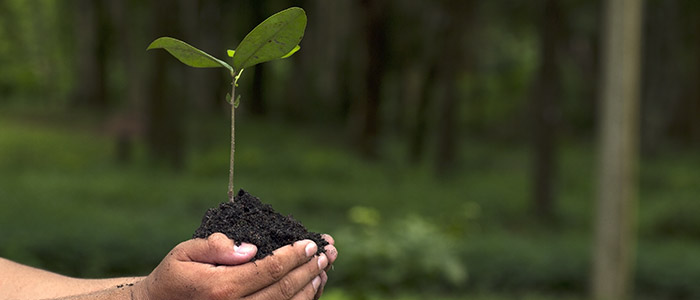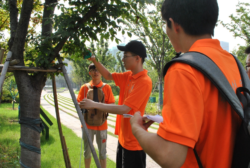Plants and People

Green spaces such as gardens, woodlands and parks provide a range of benefits to people, delivering ecosystem services, that is the benefits that people obtain from ecosystems.
Ecosystem services provided by vegetation include storing and sequestering carbon dioxide, helping to mitigate change, and reducing the concentration of pollutants in the atmosphere, bringing benefits for human health. Green spaces we know to provide a range of benefits for human wellbeing, providing a place for people to undertake physical activity, and also a place for reflection and relaxation. Researchers at the University of Leeds are exploring a range of interactions between people, plants and green spaces that can help to inform how we manage and develop green spaces in the future.

University of Leeds Image Library
A team of researchers have been exploring the future role of UK public parks. By studying the historical role of parks in the Victorian era, the project looked to understand how parks may be used in the future. The study considered six images for future urban parks based on a range of different conditions which demonstrate uncertainties around how parks will be used in the future. In the future, there may be a change in how parks are managed, based on public pressures to provide green space in increasingly urbanised areas. There’s also an increasing awareness of the importance of greenspaces for wellbeing, particularly following the Covid-19 pandemic.
Researchers at Leeds are contributing to a growing body of research looking at how people interact with and perceive green spaces, with evidence that human wellbeing is enhanced by exposure to nature. With more than 80% of the UK population living in towns and cities, urban greenspaces are essential for providing access to biodiversity. LEAF researchers have explored how people perceive biodiversity, considering the response in wellbeing to greater levels of species richness in the urban environment. The study found those who perceive the environment to be greener to have greater mental health, however, there was no consistent interaction observed between species richness and reported wellbeing, with people presenting a low capacity to objectively measure the species richness of the environment.

Researchers taking tree measurements in Changzhou, Jiangsu province, China.
As the planet warms under climate change, our towns and cities will likely see elevated warming due to the Urban Heat Island Effect. Urban green spaces can help to reduce this warming, by providing shade and also by transpiration at the surface of vegetation reducing temperatures. Researchers at the University of Leeds have been exploring the impact of tree species richness and diversity on the degree to which green spaces can mitigate this warming effect, studying tree communities in China. The study highlights the importance of tree species diversity for green spaces to mitigate the urban heat island, finding tree species diversity to positively correlate with temperature reductions. Future management of green spaces will need to consider how we can minimise the Urban Heat Island Effect, to support the health and wellbeing of people living in urban areas.
A key collaboration for LEAF is our Leeds4Trees project, which aims to increase our knowledge about the importance of trees and green spaces in urban areas. Researchers working with UBoC are using natural capital valuation tools to estimate the environmental benefits provided by trees. Through this research, the Leeds4Trees partnership is helping to widely communicate the benefits of trees for people’s health and wellbeing and to improve environmental quality, informing tree protection and planting policies across the UK.
